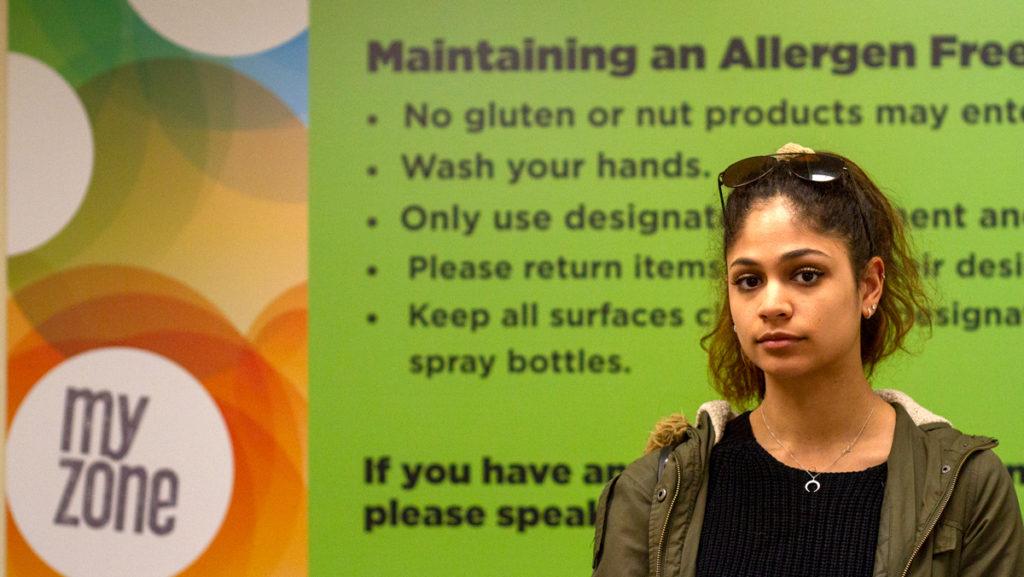All my life I have struggled with various allergies. As a baby, I had frequent bouts with the croup, which is essentially an upper-airway infection that blocks breathing and has a distinctive barking cough. The croup turned into seasonal asthma and a host of other allergies, including allergies to peanuts and birch trees, making me unable to eat certain fruits and vegetables, and a gluten allergy that was genetically predisposed. I’ve been to dozens of allergists who all have different opinions as to why I have so many allergies and why they have been increasing as I get older. They also tell me that I am not alone.
My most annoying allergy is my gluten allergy. I was instructed not to eat gluten by my doctor when I was 10 years old, shortly before my grandmother and father were officially diagnosed with celiac. Gluten wreaks havoc on my digestive system, ruins my skin, gives me headaches and makes me extremely lethargic. Eating gluten-free has become easier in recent years. Twenty years ago, you couldn’t find anything “gluten-free” at restaurants or in grocery stores. Between 2005 and 2010, gluten-free products grew by nearly 80 percent, according to a recent study by Mintel Global New Products Database. Today gluten-free options are in abundance. But at what cost?
On average, gluten-free products are 242 percent more expensive than regular products according to Canada’s Dalhousie Medical School that compared prices of 56 gluten-free items with ordinary grocery items containing gluten. Studies have shown that in North America, the average unit cost of the gluten-free product is $1.71 versus $0.61 for non-gluten products. Canada’s Dalhousie Medical School found Betty Crocker gluten-free chocolate brownie mix costs 22 cents more per ounce than the regular mix. A study from the Journal of Human Nutrition and Dietetics said that not only is gluten-free food far more expensive than regular food, but the specific qualities of gluten-free foods (like gluten-free pretzels) are often processed with more saturated fats, sugar and salt than the regular items. If you’re buying gluten-free products in the hope of losing weight, you haven’t done your research.
Gluten-free products should not be more expensive than regular products, especially for those who don’t have a choice. One of the reasons gluten-free products are so expensive is because they have been labeled as a luxury fad item. They are so expensive because the government makes companies bend over backward to get their products gluten-free certified. Companies also claim that alternative flours, such as rice flour, are more expensive than wheat flour, causing the prices of gluten-free products to be higher. I cannot be the only one who is frustrated with this price inflation.
I recently found out that Canadians diagnosed with celiac disease can claim the cost of gluten-free foods as a medical expense. After doing extensive research, I found out you can do the same in the U.S., but the restrictions are incredible. In order to qualify, you’ll have to have a blood test and a biopsy of your gut to ensure the government that you can’t handle gluten. You also cannot claim more than 10 percent of your adjusted gross income and you must document every expense and keep all the receipts for gluten-free products purchased. You can ONLY claim deductions if you have celiac disease. This is discriminatory for people like myself who have a gluten allergy that affects me differently from people with celiac. Also, some people just feel better when they don’t eat gluten. They shouldn’t have to pay more money to feel healthier. Gluten-free products shouldn’t be twice as expensive as normal products; If they must, the Food and Drug Administration should give people an easier way to track receipts and gluten-free intake.
My suggestion for people who get frustrated with the price of gluten-free products is to eat truly gluten-free. Eat primarily veggies, rice, proteins and legumes without the overpriced, processed and frozen gluten-free products sold. Stop buying packaged products until the government and FDA can cut us a break.














